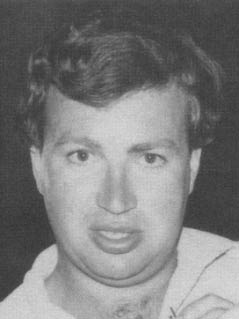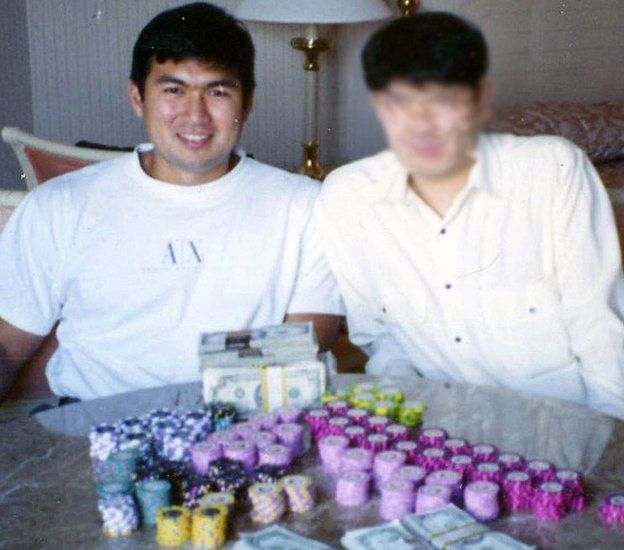Tommy Hyland – Hall of Fame
Tommy Hyland is one of the most famous professional blackjack players of all time. Having initiated the longest-running—and immensely successful—blackjack card counting team in the history of the game, Hyland was among the very first inductees of the Blackjack Hall of Fame in its debut year, 2002. Pitching Pennies to Tossing Chips Tommy Hyland, from Pitching Pennies to Bankrolling Thousands in BlackjackBorn in 1956, Tommy Hyland grew up in New Jersey where, like many professional bettors, he learned to gamble at a very young age. While in the fifth grade, he and his friends played a game known as Pitching Pennies. Each player would toss a coin against a wall, and the player whose coin landed closest to the wall would collect all of the coins in play. It wasn’t long before Hyland began sports betting, but not on other teams – on himself. Tommy was a fantastic athlete who participated in multiple sports growing up, including baseball, basketball and golf, among others. He was betting a dollar, or a soda, on rounds of golf before he became a teenager; a wagering activity he learned from his father, a recreational gambler who only bet small amounts on rare occasions. Once Tommy reached high school, his sports betting had become so widespread that he actually backed his own pool cards for awhile, becoming the house rather than the player; an activity he’s not so proud of in his mature years. It wasn’t until Hyland attended college in Ohio that he really became diluted with gambling activities. He was still betting on golf—for much more money than before—but also began playing poker. Tommy once described himself during his college years as a “bum”, neglecting studies to read up on gambling strategies. Tommy’s life would take a whole new path when he picked up a copy of the 1971 book, ‘Playing Blackjack As A Business’, by Lawrence Revere. With the help of his roommate, Hyland began studying strategies in-depth in 1978, and living fairly close to Atlantic gave him plenty of opportunities to test his new skills. Hyland admitted that it took him a long time to master the art of card counting. Although many of the books he read taught the practice, he said it was never explained properly. In order master the skill, he and another friend would spend hours dealing cards and keeping counts until they finally became good enough at it, but only when working as a team. While playing at Resorts Casino, Hyland met another future Hall of Famer, Stanford Wong, author of ‘Professional Blackjack’, who immediately recognized the two were trying to count cards. Wong gave them some tips that Tommy utilized to perfect their strategy, and before long, they met several other card counting experts. Under the guidance of Ken Uston’s book, ‘Million Dollar Blackjack’, which spoke about forming teams, Hyland established what would become the longest running blackjack team in history. Hyland Blackjack Team In 1979, Hyland’s blackjack team was four-men strong. Each contributed $4k to the bankroll, giving them $16,000 to work with. By the end of the year, they had built that to […]
Read moreHow A Team Of Students Beat The Casinos
When it comes to gambling, everyone knows the casino always comes out on top – right? But in the 1990s a group of students proved the punter didn’t have to be the loser. This is the story of the MIT Blackjack Team. Bill Kaplan laughs, remembering his mother’s reaction when he told her he was postponing his entrance to Harvard to make his fortune at gambling. “Oh my God, this is ridiculous! What am I going to tell my friends?” she said. Kaplan had read a book about card counting and believed he could use a mathematical model to make good money from blackjack. It was certainly not his mother’s dream for her straight-A student son. But Kaplan’s stepfather was more open to the idea and threw down a challenge. “Play me every night and prove you can win,” he said. “I crushed him for 2 weeks straight,” recalls Kaplan. “He told my mother ‘I can’t believe this but he can really win at this game – just let him go.’ So my mother wasn’t wild about it but I went to Vegas and I spent a year there.” That was in 1977 – Kaplan took $1,000 (£600) and within nine months had turned it into about $35,000 (£20,000). He went on to graduate from Harvard and over the years kept playing blackjack around the world. Image copyrightBILL KAPLAN His life took a dramatic turn when the leader of a small group of students from the Massachusetts Institute of Technology (MIT) who had dabbled with card counting overheard him discussing his Vegas exploits. They asked him to train and manage what would later become known as the infamous MIT Blackjack Team. In 1992, with the gambling industry booming and new mega-casinos springing up, Kaplan and his partners saw an opportunity for them to go mega as well. Friends and partners who had previously seen 100% returns on smaller investments, stumped up a startling $1 million to fund a new company, Strategic Investments, which would train bright students to card count and gamble – and then unleash them on the unsuspecting casinos. One of these students was Mike Aponte, then a 22-year-old who was unsure what he wanted to do with his life. After perfecting the technique in empty classrooms, he was shocked to be handed $40,000 (£24,000) in cash to gamble on behalf of the team. He was even more shocked to lose $10,000 (£6,000) of it in his very first ten minutes at a blackjack table in Atlantic City. “An executive casino host came over right away and greeted me and took me up to a penthouse suite. It had a jacuzzi, pool table – it was amazing. I was in awe of the room but I didn’t enjoy it as much as I would normally have, because I was still upset about losing all that money.” It was a lesson in just how volatile blackjack could be – even with a scientifically proven system. But he continued to rely on the team’s method that weekend and was, in the end, able to return to college with a net […]
Read moreHow to beat the casino – legally
If there’s one thing everybody knows about gambling it’s that the house always wins. And while it is true that casinos always make a profit, there are a number of ways to cheat the system – some of which are actually perfectly legal. Half a century ago, mathematician Edward Thorp published a groundbreaking book outlining how a player could use “card counting” to get an advantage in the game Blackjack by keeping track of the cards left in a deck. Ever since, casinos have been trying to eradicate card counting while card counters are getting increasingly skilled at not getting caught. So is it possible to outplay casinos today? And what will it be like in the future? Winning Blackjack Hand. Wikipedia Commons Casinos are businesses and operate by building in a margin – often referred to as the house edge. If you play roulette and bet on a single number you will be paid at odds of 35-1 when the true odds are 36-1 in Europe and 37-1 in the US. The fact that you are receiving less than the true odds is the house edge and explains why casinos make money in the long term. Of course, some people have to win, otherwise casinos would cease to exist. Advantage players What casinos don’t like are “advantage players” – people seeking to have an edge over the house. Sometimes this involves cheating and/or illegal activities ranging from past posting (making a bet after the time when no more bets are to be taken) to collaborating at the poker table and using a computer to help make decisions. Card counting, however, is legal. In Blackjack, the aim of the player is to achieve a hand of cards whose points add up nearer to 21 than the dealer’s hand, but without exceeding 21. Many hands are played from the same deck of cards, so what happens in one hand will influence what happens in future hands. As an example, if a ten has been played from the pack then it cannot appear in the next hand. This is different from other games, such as roulette, where the outcome of one spin has no effect on the next spin. Professor Thorp and his contribution to card counting. Card counting is based on the fact that a large proportion of high cards (such as tens, jacks, queens and kings, which are all worth ten points) left in the unplayed deck statistically improves the player’s chances. This is because a player can decide not to draw a new card to a hand such as 16, but the casino is forced to, as it follows strict rules. If there are a high proportion of high cards left in the unplayed deck of cards, the dealer has more chance of busting (going over 21). This can be combined with “basic strategy” – developed from computer simulations of millions of blackjack hands – which tells the player the best action to take for each possible card combination. Combining card counting and basic strategy can help a player convert the (long term) house edge from 2.7%, in favour […]
Read moreKevin Blackwood – World’s Greatest Job
Kevin Blackwood was a high-stakes professional blackjack player for many years. His book The Counter, while fiction, displays a profound knowledge of the game and what happens when a player gets “too good.” For the last two decades, I’ve lived what many would consider the American dream, earning big bucks while working only part-time. My profession? Card counter. My office? Blackjack tables all over the world. Incredible perks accompanied my vocation–ringside boxing tickets for the big fights, offers to play golf with celebrities, front row seats to sold-out shows, and gourmet dinners at the finest restaurants. Though I enjoyed these epicurean experiences, the comps were strictly a side benefit. I chose this unusual line of work for only one reason–to make money. Easy money. And I succeeded, becoming one of the top blackjack players in the country. How did I win in a game where everyone is expected to lose? Or more importantly, is it possible for a reader like you to follow in my footsteps and routinely withdraw money from casinos? Contrary to what some people believe, you don’t need to be a mathematical genius or play on some highly capitalized team to become the predator instead of the prey in blackjack. Rather than rehash the basics of card counting, I’ll show how my career refutes these two common misconceptions and how discipline, drive, and persistence were the ticket to my success. These qualities ultimately separate the few who actually make a living at blackjack from those who frequent the glitzy temples of chance only to help pay the light bill. The typical Hollywood myth portrays professional blackjack players as walking databanks–“Rain Man” clones with incredible photographic memories. The truth is that anyone with an average aptitude can learn to count cards and become a winning player. I do possess an exceptional memory, but my main strength was a dogged tenaciousness. I read everything by gifted players who came before me: brilliant men like Uston and Wong. I absorbed their advice and refined it, extracting every last ounce of theoretical edge card counters can gain over the house. Then, before ever setting foot in a casino, I disciplined myself to play like a machine, honing my skills with over a hundred practice hours at home, drilling relentlessly until all decisions and calculations became as natural as breathing. For example, I practiced talking while rapidly counting down decks, pushing myself until I could eventually fly through 52 cards in 12-14 seconds. Confident of my skills, I attacked any blackjack game up to six decks that offered good rules and great penetration, but I quickly realized that playing against one deck was the easiest way for me to beat the game. (Counting six decks is not more difficult than counting one, but the edge rarely rises as high and the win rate is usually lower in multiple decks.) However, some experts recommended playing only shoe games because pit bosses watched single deck so closely. A contrarian by nature, I refused to follow the herd and vowed early on to play only the very best games, and one and two deck offered […]
Read moreThe Man Who Broke Atlantic City
Don Johnson won nearly $6 million playing blackjack in one night, single-handedly decimating the monthly revenue of Atlantic City’s Tropicana casino. Not long before that, he’d taken the Borgata for $5 million and Caesars for $4 million. Here’s how he did it. DON JOHNSON finds it hard to remember the exact cards. Who could? At the height of his 12-hour blitz of the Tropicana casino in Atlantic City, New Jersey, last April, he was playing a hand of blackjack nearly every minute. Dozens of spectators pressed against the glass of the high-roller pit. Inside, playing at a green-felt table opposite a black-vested dealer, a burly middle-aged man in a red cap and black Oregon State hoodie was wagering $100,000 a hand. Word spreads when the betting is that big. Johnson was on an amazing streak. The towers of chips stacked in front of him formed a colorful miniature skyline. His winning run had been picked up by the casino’s watchful overhead cameras and drawn the close scrutiny of the pit bosses. In just one hand, he remembers, he won $800,000. In a three-hand sequence, he took $1.2 million. The basics of blackjack are simple. Almost everyone knows them. You play against the house. Two cards are placed faceup before the player, and two more cards, one down, one up, before the dealer. A card’s suit doesn’t matter, only its numerical value—each face card is worth 10, and an ace can be either a one or an 11. The goal is to get to 21, or as close to it as possible without going over. Scanning the cards on the table before him, the player can either stand or keep taking cards in an effort to approach 21. Since the house’s hand has one card facedown, the player can’t know exactly what the hand is, which is what makes this a game. As Johnson remembers it, the $800,000 hand started with him betting $100,000 and being dealt two eights. If a player is dealt two of a kind, he can choose to “split” the hand, which means he can play each of the cards as a separate hand and ask for two more cards, in effect doubling his bet. That’s what Johnson did. His next two cards, surprisingly, were also both eights, so he split each again. Getting four cards of the same number in a row doesn’t happen often, but it does happen. Johnson says he was once dealt six consecutive aces at the Mohegan Sun casino in Connecticut. He was now playing four hands, each consisting of a single eight-card, with $400,000 in the balance. He was neither nervous nor excited. Johnson plays a long game, so the ups and downs of individual hands, even big swings like this one, don’t matter that much to him. He is a veteran player. Little interferes with his concentration. He doesn’t get rattled. With him, it’s all about the math, and he knows it cold. Whenever the racily clad cocktail waitress wandered in with a fresh whiskey and Diet Coke, he took it from the tray. The house’s hand showed an upturned […]
Read more





